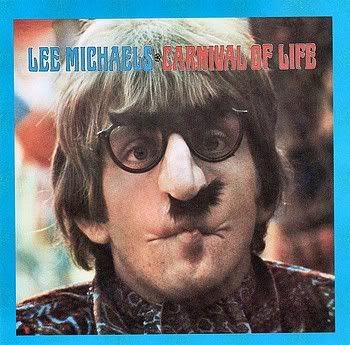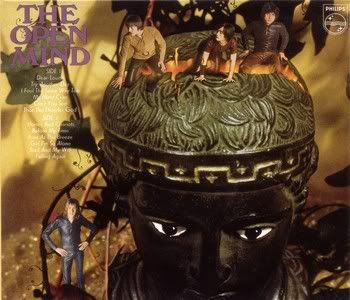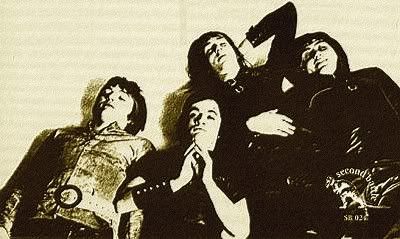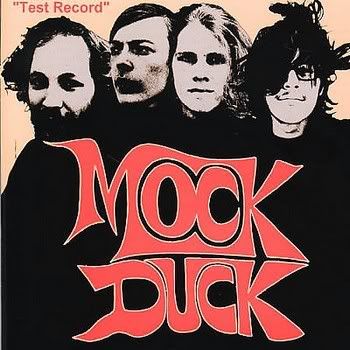
Lee Michaels - Carnival Of Life - 1968 - A&M Records
Carnival Of Life may sound a bit dated now, but it's still a good example of early West Coast psychedelic pop rock. The organ and harpsichord work is outstanding and ahead of it's time in it's originality and concepts, and Hamilton Wesley Watt's fine guitar playing perfectly complements Lee Michaels great vocals and keyboard playing. You can find some good info on Lee Michaels @ LM/BIO/MYS Buy his great "Absolute Lee" album.
TRACKS
Hello
Another One
Streetcar
Love
Carnival of Life
Why
Tomorrow
Sounding the Sleeping
My Friends
All songs composed by Lee Michaels
MUSICIANS
Bass - John Keski
Drums - Eddie Hoh
Guitar - Hamilton Wesley Watt
Organ, Bass - Rev. Gary Davis
Vocals, Piano, Organ, Harpsichord, Bass - Lee Michaels
N.B: Also released on A&M 4-Track reel tape in 1968
REVIEWS
This album is an excellent example of California Psych-Pop with inventive organ and harpsichord parts, Michaels' superb vocals, and Hamilton Wesley Watt's (of Euphoria) blistering guitar cutting through the mix. A quirky start to what would be a fine and innovative career , and a fine and timeless album in it's own right. © 1996-2009, Amazon.com
Lee Michaels, a veteran of the Los Angeles and San Francisco bar-band scene in the mid-'60s, struck out on his own in 1967 after fronting bands with such illustrious alumni as Joel Scott Hill, Bob Mosley, and John Barbata. Michaels' music was characterized by his soulful vocals and equally soulful organ playing. These awesome talents would be polished on his second and third albums, but his debut, while interesting, falls a bit short. The main problem is that A&M saw Michaels as sort of a psychedelic singer/songwriter/rocker. In reality, he was sort of a California version of Steve Winwood. Carnival of Life has some excellent performances by Michaels and especially drummer Eddie Hoh. Both rock hard on the album's nine cuts, but the material is a bit dated and tends to end up in some hard-rock clichés of the period. Still, it's a promising if quirky start of what would be a fine career. © Matthew Greenwald, All Music Guide
BIO (Wikipedia)
Lee Michaels (born 24 November 1945, in Los Angeles, California), plays the Hammond organ, piano, and guitar (plus vocals), was best known for his 1971 Top 10 pop hit, "Do You Know What I Mean". Michaels, also known as Mike Olsen, began his career with The Sentinals , a San Luis-based surf group which included Merrell Fankhauser and drummer Johny Barbata (later of The Turtles, Jefferson Airplane, and Jefferson Starship). Michaels joined Barbata in the Strangers, a group led by Joel Scott Hill, before moving to San Francisco. In 1967, he signed a contract with A&M Records, releasing his debut, Carnival Of Life, later that year. Michaels' choice of the Hammond organ as his primary instrument was unusual for the time, as was his bare-bones stage and studio accompaniment: usually just a single drummer, most often a musician known as "Frosty" (Bartholomew Eugene Smith-Frost), or with Joel Larson of The Grass Roots. This unorthodox approach attracted a following in San Francisco, and some critical notice, but Michaels did not achieve real commercial success until the release of his fifth album (Fifth), which produced a surprise U.S. Top 10 hit (#6 in the fall of 1971), "Do You Know What I Mean," and a Top 40 follow-up, a cover version of the Motown standard, "Can I Get A Witness". Michaels recorded two more albums for A&M before signing a contract with Columbia Records in 1973. His Columbia recordings failed to generate much interest, and Michaels went into semi-retirement from the music business by the end of the decade. He currently owns a chain of restaurants, named Killer Shrimp, around Southern California. Apparently, after a trip to New Orleans, Michaels invented a dish that his friends liked enough to urge him to open a restaurant.
MORE ABOUT LEE MICHAELS
One of the most interesting second-division California psychedelic musicians, keyboardist Lee Michaels was one of the most soulful white vocalists of the late '60s and early '70s. Between 1968 and 1972, he released half a dozen accomplished albums on A&M that encompassed Baroque psychedelic pop and gritty white, sometimes gospel-ish R&B with equal facility. A capable songwriter, Michaels was blessed with an astonishing upper range, occasionally letting loose some thrilling funky wails. In 1971, he landed a surprise Top Ten single with "Do You Know What I Mean," one of the best and funkiest AM hits of the early '70s. But Michaels was really much more of an album-oriented artist, from the time he began recording in the late '60s. Michaels started playing music in Southern California, where he was in a band with future members of Moby Grape, the Turtles, and Canned Heat. By the time he signed to A&M, however, he'd moved to San Francisco, joining the management stable of Matthew Katz (which also included, at various times, Jefferson Airplane, Moby Grape, and It's a Beautiful Day). Michaels was unusual for a San Francisco act in that he relied mostly on an organ-based sound, especially after the first pair of albums, when for a time he played, live and in the studio, with the mammoth drummer "Frosty" as his only accompanist. "Do You Know What I Mean," ironically, was a throwaway tune that Michaels wrote hurriedly. Though Lee himself didn't think much of it, the song was a first-rate blast of white boy soul; around this time, the gospel influence that had often informed his sound come to the fore. His albums in the mid-'70s for Columbia, however, were both critical and commercial disappointments. Michaels moved to Hawaii for an extended retirement from the music business; aside from a self-released album in the early '80s, little's been heard from him since. © Richie Unterberger, allmusic.com







